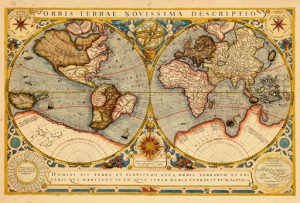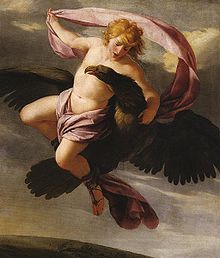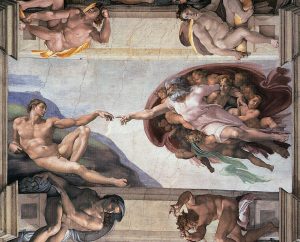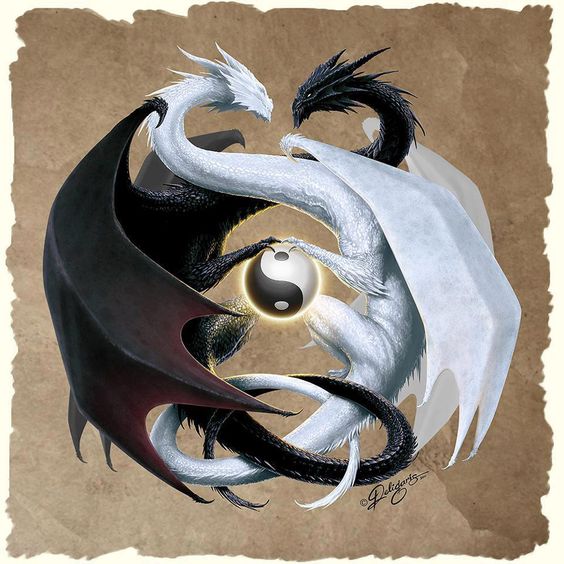Since the dawn of our species, humanity has been seeking the truth about our origins. The pursuit of the truth about our past became an all-consuming obsession for me, but I could never have imagined just what I would find, as it is so totally different from the false facts we are fed by mainstream education and media.
And thus began my exploration into humanity’s origins, with the aim of understanding the formation of social and cultural groups, from an anthropological perspective. Relevant sciences do not only observe cultural phenomenon, for indeed, the purpose of authentic and accurate scientific study would be to seek out its cause of said cultural phenomenon, from the perspective of Ethnogenesis.
Ethnogenesis is a mid-20th century neologism, and refers to the observable phenomenon of emergence of new social groups that are identified as having a cohesive identity, i.e. an “ethnic group” in anthropological terms.
Source: WIKIPEDIA

Ethnogenesis is the formation and development of an ethnic group, which can originate through a process of self-identification with a particular group subject to specific factors. This self identification can come as the result of being born into said socio-ethnic group, or by identifying with said group from an outside perspective, having migrated into a particular cultural group.
Ethnogenesis can occur passively, in the accumulation of markers of group identity forged through interaction with the physical environment, cultural and religious divisions between sections of a society, migrations, and other processes, for which ethnic subdivision is an unintended outcome.
Ethnogenesis can occur actively, as persons deliberately and directly ‘engineer’ separate identities to attempt to solve a political problem, being the preservation or imposition of certain cultural values, power relations, spiritual orientations, often with the end result being a dominant culture.
This beckons the question; What are the key cultural markers that result in the forging of a group identity? To understand these cultural markets, one need only look at the reoccurring themes that permeate mythologies around the world.

MYTHOLOGY
The world of mythology has often been relegated to the realms of the semi-dismissive, when indeed, it is those things which people of the past, have found important enough to preserve, that find place in their mythology. Having studied the vast mythologies of the world, it becomes clear that there are consistent and reoccurring cultural markers that persist thematically through all mythological renderings. Such repetitive themes from different, seemingly unconnected cultures, from all over the world, provide much evidence in the assimilation of what defines an ethnic group, and thus, the ensuing culture of said ethnic group.

CREATIONAL MYTH THEME
An example of a repetitious theme which seems to be the genesis of many ethnic groups, is the creation myth. In various cultures such as the Indian Hindi, Persian Zoroastrian, and ancient Greek mythologies, the universe is said to have been birthed from a cosmic egg, which is more of a symbolic gesture than literal interpretation.
SERPENT / DRAGON DEITIES
Another repeating theme that is worthy of note, is that of a creator god taking the form of a serpentine deity. This theme is in fact more common than most people realise, and the symbolic allegory is has far reaching implications. To grasp more about serpent symbolism, please reference my body of work called DRAGONOLOGY | www.dragonolgy.info
GENESIS OF CULTURE
Historically, a civilization has been defined as a so-called “advanced” CULTure, in contrast to supposedly more “primitive” peoples. In this broad sense, a civilization contrasts with non-centralized tribal societies, including those of nomadic pastoralists or hunter-gatherers. A civilization is a complex society characterized by symbolic communication forms such as art, writing and language systems. A key pattern and hallmark of civilization is the concentration of power, extending human control over the rest of nature, including over other human beings. The earliest emergence of civilization is generally associated with the appearance of a governing elite, the practice of slavery, the obsession with gold, and the worship of a god or various deities, often of a serpentine countenance.
Civilisations are intimately associated with, and often defined by, other social, political and economic characteristics such as expansionism, centralisation of power, the domestication of both humans and other organisms such as plants and animals, specialisation of labor or slavery, religions, rituals, culturally ingrained ideologies of progress, supremacism, monumental architecture, temples of worship, acts of sacrifice (tax is a form of sacrifice), but most importantly, societal dependence on farming and agriCULTure. It is indeed the appearance of agriCULTure practice and ritual behavior, which truly define the move from nomadic peoples and tribes, to the emergence of CULTure and civilisation. In fact, agriCULTural practices and ritual practices seemingly appear simultaneously on the timeline of human development, and this is very significant, as the practice of agriCULTure and the practice of ritual are inextricably linked.

AGRICULTURAL REVOLUTION
The AgriCULTural Revolution was the wide-scale transition of many human CULTures, from lifestyles of nomadic hunting and gathering, to that of settlement and agriCULTure, making possible increasingly larger populations in centralised locations. According to mainstream academics, their archeological data is said to indicate that the domestication of various types of plants and animals developed in separate locations worldwide, starting around 12,500 years ago. This has been the officially recognised time period during which the world’s historically verifiable revolution in agriCULTure happened. This is also the time period given for the supposed emergence of civilised man and advanced CULTure. However, there have been many archeological discoveries across the world, which have thrown the official timeline of mainstream historians, anthropologists and academics, into question, and which point to the astonishing realisation that this seeding of civilised or advanced humanity, is in no way the first. There have been several that have come before us, and this is acknowledged in the languages of ancient CULTures, an example of which can be found in the ancient Egyptians language which refers to ‘Zep Tepi’, the ‘first time’. There are ruins belonging to so called advanced or civilised societies, which have been discovered scattered across the world, and which date back further than the 12,500 years time frame given to the supposed appearance of civilised / advanced humanity. In fact, the knowledge and technologies involved in the construction of some of these ancient sites, far surpasses anything we are able to achieve in our current state of so called civilisation and human advancement.

RITUAL
RITUAL is commonly defined and understood to be a sequence of activities involving gestures, actions and words, performed in a sequestered place, and performed according to a set sequence. RITUALS can be found in all known human societies, and is a distinctly human endeavour, as animals do not acknowledge or engage in RITUALS. Indeed, the concept of RITUAL has baffled Anthropologists across the world for hundreds of years, as there is no widely agreed upon explanation as to why RITUALS happen. Why do people of seemingly unrelated cultures in different points in time, and in different parts of the world, engage in or perform RITUALS, many similar in pattern and nature, and many of which involve acts sacrifice, or symbolic gestures of sacrifice involving votive offerings. The field of RITUAL studies has seen a number of conflicting definitions of the term, and thus defining RITUAL, or indeed, even beginning to understand the purpose of RITUAL, is often a complexly confusing matter. The reason for the this confusion, is due to the fact that many RITUALS seem to serve no practical purpose at all, often appearing to the outsider or onlooker to be non-contiguous, illogical or irrational. RITUAL is usually an effortful endeavour, and usually sits outside the realms of that which is deemed practical, functional or which serves our basic survival needs. Activities such as eating, sleeping and breathing are basic physiological needs, and thus are generally not considered to be ritualistic in nature. Indeed, RITUAL is an excessive and costly activity, often with the ultimate cost of human life or SACRIFICE of other kinds, and yet in most cases, RITUAL forms the central CULTural axis around which many societies have been formed… And thus the question beckons; how has humanity become so obsessed and imbued with RITUAL activity?
ETHNOGENIC IMPORTANCE OF RITUAL
Comprehending the importance of RITUAL cannot be underestimated. In the mainstream anthropological view, it is the appearance of RITUAL which marks the move from what we as supposed privileged, modern day people would call ‘primitive’ peoples, to supposedly civilised and complex societies, the kind that most of us are familiar with, consisting of laws, infrastructure, institutions, temples, developed language and communication systems including art and writing,.
There is a direct correlation between:
- the appearance of organised civilisations / societies,
- the worship of gods / serpent deities / dragons, and
- the occurrence of ritual and agriculture
RITUALS are characterised but not necessarily defined by traditionalism, formalism or rule-governance, performance and the use of sacred symbolism. But of all the characteristics of RITUAL which are the most prominent, it is the practice or acts of sacrifice (or symbolic gestures thereof) which are central to most RITUALS.
I myself am not a trained or classically qualified academic, and perhaps that is of benefit to my investigative capacities. I do not seek to box any discovery into a pre-labeled and predetermined formats or ideologies. Rather, I choose to question that which does not make sense. I choose to go where the evidence directs me, and to be honest about what I may find upon my path. I am not attached to any pre-existing idea about how the world works as I have not invested hundreds of thousands in funds into a university issued education / indoctrination / version of reality about such subject matters. Rather, I pride myself of being a self directed learner, who has engaged this cosmic gauntlet of confusion, with the pure intent of finding the facts, whilst becoming savvy in my discernment of truth. I have spent years developing the informational context within which to cross reference the discovery I have made, and that we shall explore. Having always been a bit of a rebel and free spirit, it was at a very young age that I realized the mainstream education has failed in trying to explain some of the greatest mysteries of our world, because they simply ignore the evidence, which is not hidden from the public, rather it is there for anybody to see. But not all who see the evidence will understand just what this means in the greater context of humanity’s existence, because they don’t want to see. They do not want to know the truth as it challenges their own self identity, which is firmly entrenched into the fabric of their existence due to the expensive and effortful education / indoctrination they have undergone. With no predetermined view points to defend, I focus on evidence, fact and truth, whilst always working from a place of logic. Once one has found the discipline to work from a place of logic, rather than from pre-determined ideologies, it becomes easier for one to trust their intuition without the risk of emotion or ego clouding their judgment.
To learn more about our ethnogenic and cultural origins, please check out my DRAGONOLOGY body of work, as well as my ground breaking Anthropological study THE GREATEST DISCOVERY.

